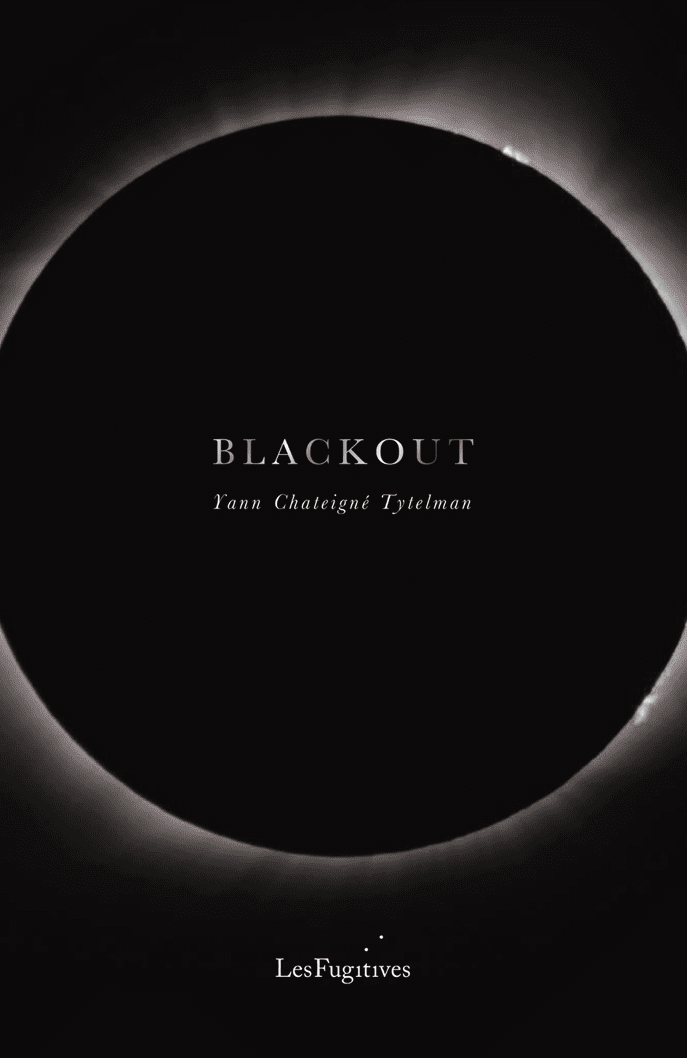Les Fugitives
Les Fugitives

Blackout
Spring 2020. During lockdown in a mountain village with his partner and young child, Yann Chateigné Tytelman becomes haunted by the presence of his dead father. Provoked by memories of him, of their laconic relationship and of the class antagonisms that emerged between them – the father was a manual labourer while his son ‘turned his back’ and entered the art world – Chateigné Tytelman starts writing letters, piles of them, which have as their subject that most mystical, most incomprehensible of phenomena: silence.
Condensed into a series of short fragments, Blackout interweaves the letter to the father with the observations of an art theorist who surveys with precision the occurrences and experiences of silence in painting, music, literature and philosophy.

Chicanes
Translated from the French by Naima Rashid, Natasha Lehrer, Lauren Elkin, Ruth Diver, Jessica Spivey, Jennifer Higgins, Clem Clement and Sophie Lewis.
As she tries to collect them for an essay she is planning to write, other women’s words begin interfering in Clara Schulmann’s life — heard on the radio, in podcasts, songs, and films; words of novelists, feminist intellectuals, friends or strangers overheard in the street. They invade her psyche, reshaping the essay that she once had in mind into a picaresque adventure which investigates the fault lines around women’s voices: and in particular those moments of overflow and excess where wayward words take seed.
Chicanes heralds a new French feminism through a meticulously orchestrated chorus of the wildest female voices, from figures in the history of feminist writing to the stranger on the street, blurring the boundaries between body and art; personal and political. A poly-translation, by eight female translators, from established to emerging, Chicanes brings the individual voice of each translator into subtle relief.

Detour/Détours (Hotel Cordel No. 1)
Cécile Menon, Dominic Jaeckle and 1 more
Detour/Détours imagines debt as a language game: as a broken pun; a break in a journey; a play on value and the meaning of money as it changes hands. Or in terms of Guy Debord’s détournement — as a debt reimagined through the integration of old works into something new.
The word debtor owes etymologically to the old French deteur. But — moving into English — its first appearance dates back to the early 13th century and — sounded out as dettur, dettour or detour — debt can be read as an elaboration on the mottled intimations of a detour with a little poetic license. A detour is a deviation, a digression; a play on our various senses of direction. Exploring the will, want or need to take the long way around — and seeking to bastardize and scrutinize our relationship with (and conceptualization of) a statement of debt — here we have a set of searching works that critique all our methods of repayment. Participating authors were given free rein to produce a piece of writing in response to these ideas, and the works included herein — five first English-language translations and five original texts — wind their way around the weight of the word ‘debt’ in ten attempts to reroute its meaning.
Questions of Worth by Noémi Lefebvre, translated by Natascha Lasorak and Sophie Lewis
Silent B by Lauren Elkin
A Problem of the Greek Type by Mathieu Larnaudie, translated by Adrian Nathan West
Emotional Debt/Speed of Recovery Matrix by Selma Dabbagh
Debt Night by Preti Taneja
The Pastoral Calculation by Sandra Lucbert, translated by Jessica Spivey
The Debt Collector by Jen Calleja
Unknown Soldier by Nicolas Bouyssi, translated by Amanda DeMarco
Good Relations by Joanna Walsh
Out of Debt by Thomas Clerc, translated by Jeffrey Zuckerman
Edited by Emmanuel Bouju, Dominic Jaeckle & Cécile Menon
Limited Edition of 300 copies
180 x 120, paperback, 78 pages